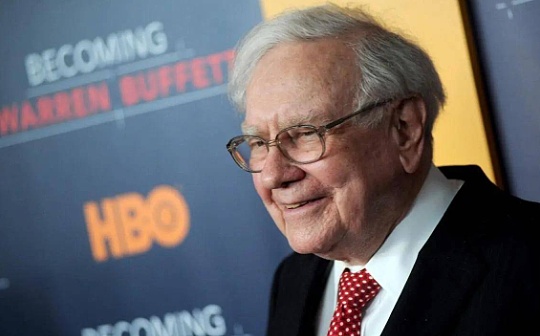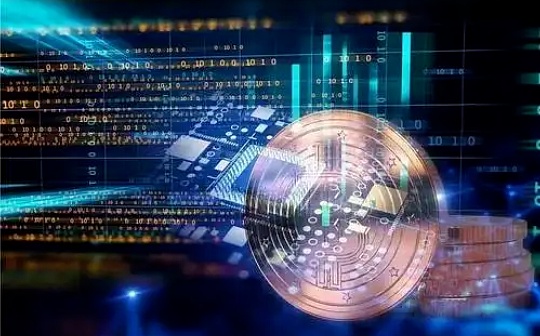Important information last night this morning (May 14-May 15)

Reprinted from panewslab
05/15/2025·26D
British museum places German artist Dürer's Rhino sculpture on Bitcoin blockchain
According to Decrypt, the British Museum cooperated with Asprey Studio to reinterpret the 1515 masterpiece "Rhino" by German Renaissance artist Albrecht Dürer as 11 sterling silver sculptures. Each sculpture will be sold together with digital inscriptions on the Bitcoin blockchain, using inscription technology to ensure traceability of the source of the work. Asprey Studio chief creative officer Ali Walker said that buyers will first obtain a digital inscription certificate, and the sterling silver sculpture will take months to customize. The 40 cm tall solid silver carving process is complicated, and the digital model needs to be divided first and then welded to form. Only a few craftsmen in the UK can complete this process. As a pioneer of the German Renaissance, Dürer had never seen a real rhino when he created the prints of "Rhino" and was completed only based on text descriptions. Walker believes that Dürer would be very adapted to the digital rights confirmation method of the modern art circle when he is alive. The British Museum has previously released NFTs for artists such as Katsushika Hokusai through LaCollection, and has collaborated with The Sandbox to develop the metacosmic experience. The digital inscriptions in this cooperation do not NFT the original work, but create blockchain evidence for silver sculpture works. The original sketch is still collected by the British Museum.
Coinbase agrees to pay $2 million settlement to end Dogecoin lottery lawsuit
According to Decrypt, cryptocurrency exchange Coinbase and marketing company Marden-Kane recently agreed to pay a settlement of $2.25 million to settle a class action lawsuit that has lasted for many years. The lawsuit accused Coinbase of failing to explicitly inform users of free participation in the Dogecoin trading lottery held in June 2021, and was suspected of false propaganda. Under the settlement agreement, US users who trade at least $100 Dogecoin during the event will receive compensation for the fees and spreads incurred in their first transaction. Data shows that Coinbase received approximately US$1.3 million in handling fees through related transactions during the event. The lawsuit began in 2021, with plaintiff David Suski claiming that he still traded through Coinbase if he already has Dogecoin in his possession due to no free participation clause in the event. The U.S. Supreme Court rejected Coinbase's request for compulsory arbitration last year.
Cardano founder reveals details of the “Glacier Drop” airdrop plan for privacy sidechain Midnight
According to CoinDesk, Cardano founder Charles Hoskinson announced details of the airdrop plan for the privacy sidechain Midnight's "Glacier Drop" at the Consensus 2025 conference. The plan will distribute governance tokens NIGHT and privacy token DUST to 37 million users of 8 mainstream public chains, clearly excluding the share of venture capital institutions, and all tokens are directly targeted to ordinary users. Hoskinson also proposed the "collaborative economics" model, allowing developers to use native tokens such as ETH and SOL to pay for cross-chain application fees, and validators can also obtain benefits from cross-chain collaboration. The Midnight test network has been launched and the main network is expected to be launched by the end of 2025. This airdrop is seen as a strategic measure to alleviate industry divisions and respond to the entry of technology giants.
Blockstream CEO: Bitcoin may rise to $500,000 to $1 million during this cycle
According to Decrypt, Adam Back, CEO of Blockstream, said that considering the continued inflow of institutional funds and the improvement of policy environment, Bitcoin's current price of $103,000 is significantly underestimated. He believes that Bitcoin may rise to $500,000 to $1 million during this cycle. Back pointed out that the US Bitcoin spot ETF has attracted more than US$41 billion in net inflows, and coupled with the Trump administration's crypto-friendly policies, the market fundamentals are significantly better than previous years.
Brazil's central bank proposes strict regulation of stablecoin transfers
According to The Defiant, several Brazilian government sources familiar with the relevant plans revealed that Brazilian government officials are considering issuing the country's first sovereign bond denominated in renminbi. At present, this move is still under consideration and no final decision has been made. The potential plan to issue RMB-denominated sovereign bonds will be a significant progress in Brazil's financial strategy. Meanwhile, as part of a new cryptocurrency regulatory framework, the Brazilian central bank has proposed strict regulation of stablecoins transfers. The proposed rules include restrictions on the sending of stablecoins to wallets that are not controlled by Brazilian entities, reflecting the country's tightening stance on domestic cryptocurrency transactions.
White House official Bo Hines: Trump is still expected to sign cryptocurrency legislation by August
According to CoinDesk, Bo Hines, executive director of the U.S. President's Digital Assets Advisory Board, said at the 2025 conference in Toronto that despite variables in the legislative process, Trump is still expected to sign a stablecoin and market structure bill before Congress adjourns in August. Hines said the current negotiations are progressing well, but acknowledged that legislation details are still being adjusted. In response to the conflict of interest questions about the Trump family's involvement in the cryptocurrency business, Hines emphasized that it is a legal right for the president's children to participate in the capital market as private investors, and believes that digital assets represent the future direction of the financial industry. When asked about the report that a company bought TRUMP coins, he made it clear that "the US president cannot be bribed." Additionally, Hines said the White House and its members are still working on building strategic Bitcoin reserves.
Lookonchain cited Dune data that Pump.fun's dominance is being challenged by new platforms such as Letsbonk.fun, Believe and LaunchLab. Among the daily "graduation" tokens on the market, Pump.fun has dropped from 98% to 57.5%. Letsbonk.fun accounts for 17.9%, Believe accounts for 12.9%, and LaunchLab accounts for 5%. The most popular Meme coins recently (LAUNCHCOIN, GOONC, DUPE, Hosico, etc.) are all released on Letsbonk.fun or Believe.
MetaMask says its team is still considering launching native tokens
According to The Block, Dan Finlay, co-founder of Ethereum Wallet MetaMask, was asked in a "Crypto Beat" podcast interview whether to create native MetaMask tokens, and he responded: "Maybe, if tokens are issued, they will be directly promoted in the wallet, and users can find links directly in the wallet." Although MetaMask currently has no specific token issuance plans, Finlay believes that under the relatively loose supervision of the Trump administration, the security of token issuance is higher. He hopes to take this opportunity to break through boundaries and set precedents. Finlay pointed out that the Securities Law is still the Securities Law, and many projects may still operate in the "gray zone". He also feared that potential MASK tokens would be exploited by scammers, saying that the relevant information would only be published in the wallet and on the official website. Since 2021, MetaMask has been discussing the issuance of tokens tentatively named MASK, and ConsenSys CEO Joseph Lubin also posted a preview. In 2022, Lubin further explained the intention to issue tokens and DAOs as part of the “Advanced Decentralization” plan. The DAO is described as a financing mechanism rather than a governance body, and it is clear that the token is not intended to "raise money quickly" and has also taken measures to prevent it from being used by airdrop hunters.
According to Fortune, JPMorgan Chase completed the settlement transaction of tokenized US Treasury bonds through public blockchain for the first time on May 14, marking an important step from a "walled garden" private chain to an open blockchain ecosystem. The transaction is provided by Ondo Finance tokenized Treasury bond products and is implemented through the oracle service provided by Chainlink. Previously, JPMorgan’s digital asset operations were mostly conducted on its private chain Onyx, and the transaction showed that its strategy shifted toward a more open financial infrastructure. It is reported that the transaction is coordinated by Chainlink's off-chain operating environment (CRE) to realize atomized settlement between the Kinexys payment network and the Ondo chain, marking the first expansion of Kinexys (a blockchain platform under JPMorgan Chase) to alliance chain and public chain collaboration.
According to CoinDesk, venture capital firm a16z Crypto led a $7 million seed round of financing from blockchain ticketing platform KYD Labs. KYD is built on Solana and aims to empower artists and venues to control ticket sales, fan data and revenue, and solve the problem of loss of revenue caused by the flow of secondary markets. It is said that after using the KYD system, the ticketing revenue of the famous New York venue LPR increased by 30%. KYD plans to expand to more than 100 U.S. venues by 2026, and launch two tokens $KYD and $TIX to strengthen the community and financial foundation.
Trump: I am a big fan of cryptocurrency
US President Trump: I am a big fan of cryptocurrencies.
Binance Alpha launches sudeng (HIPPO)
The APP page shows that Binance Alpha has been launched in sudeng (HIPPO).
Binance will support EOS token replacement and rename it to Vaulta (A)
According to Binance announcement, the platform will support the replacement of EOS tokens 1:1 into the new token Vaulta (A) and complete the brand reshaping. EOS-related trading pairs will be removed from the shelves at 11:00 on May 26, 2025 (Beijing time), and new trading pairs of A tokens will be launched at 16:00 on May 28, including A/BTC, A/ETH, etc. EOS recharge and withdrawal will be suspended at 11:30 on May 26, and A token recharge will be open at 15:00 on May 28. After the replacement is completed, EOS withdrawal will no longer be supported, and the platform will automatically complete technical processing. The change will affect multiple product lines such as spot, leverage, contracts, and financial management, involving trading pair removal, contract settlement, loan settlement, etc. Users need to deal with relevant assets in advance to avoid losses.



 jinse
jinse